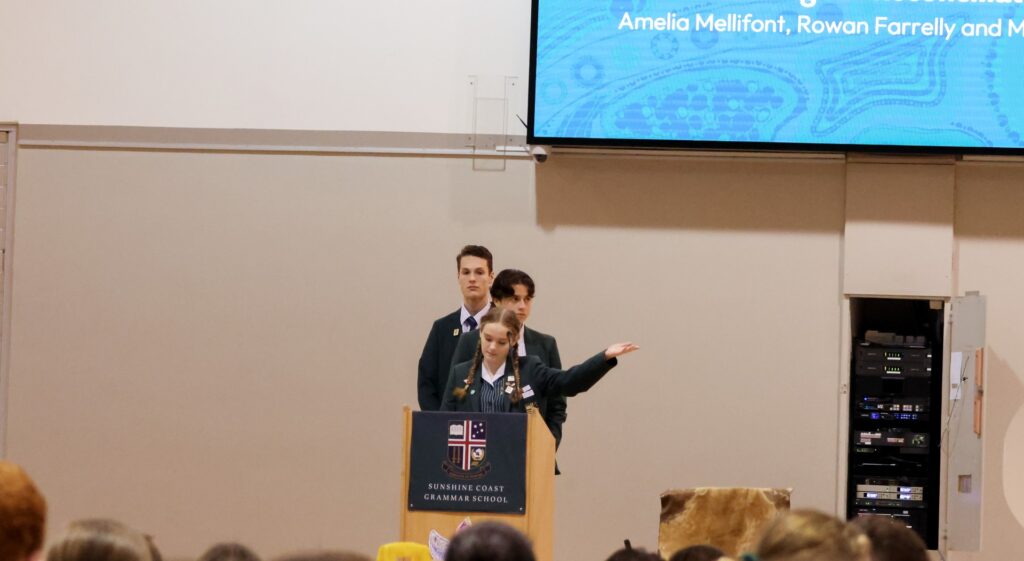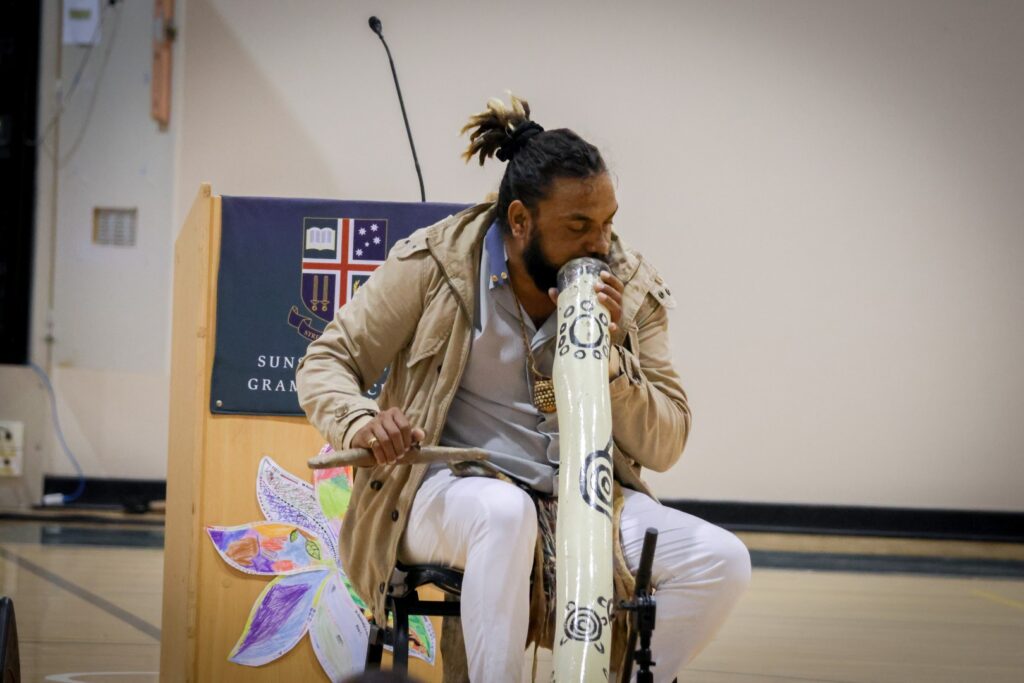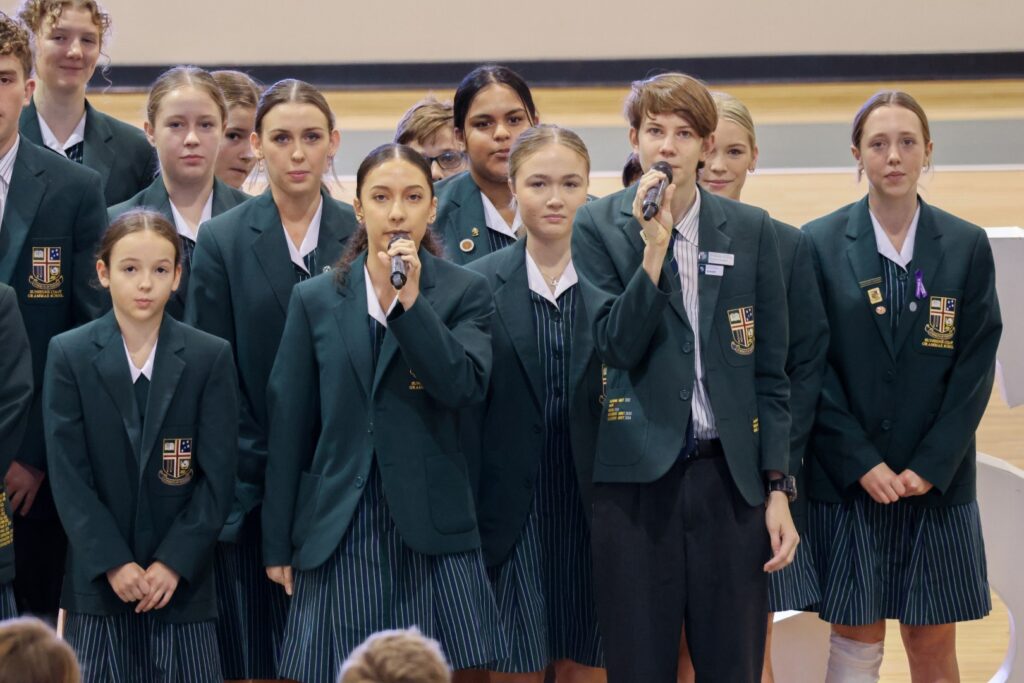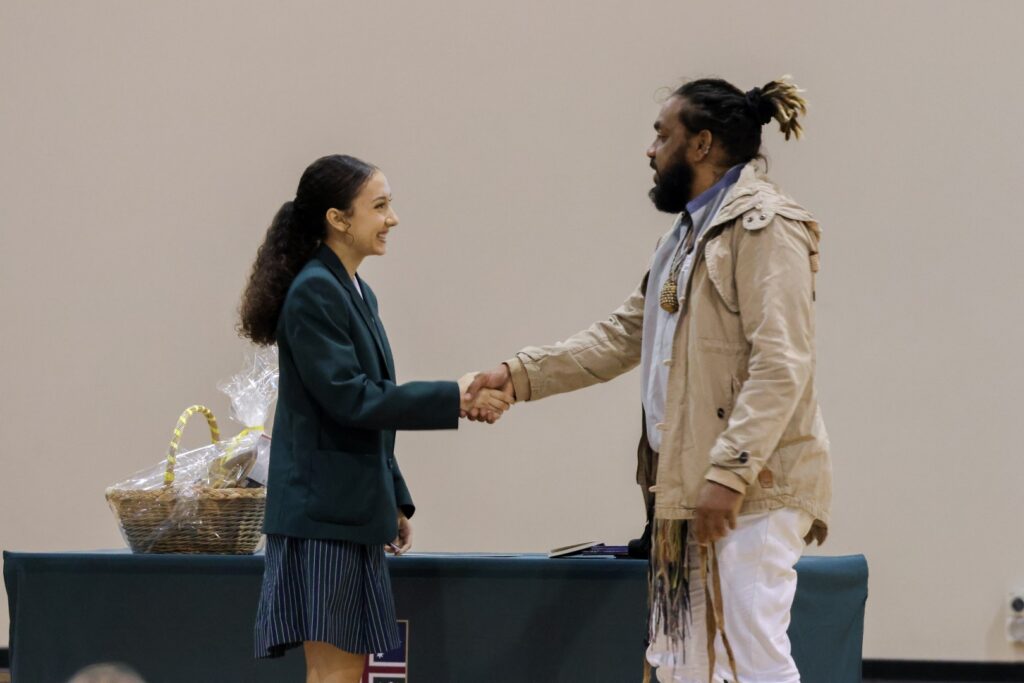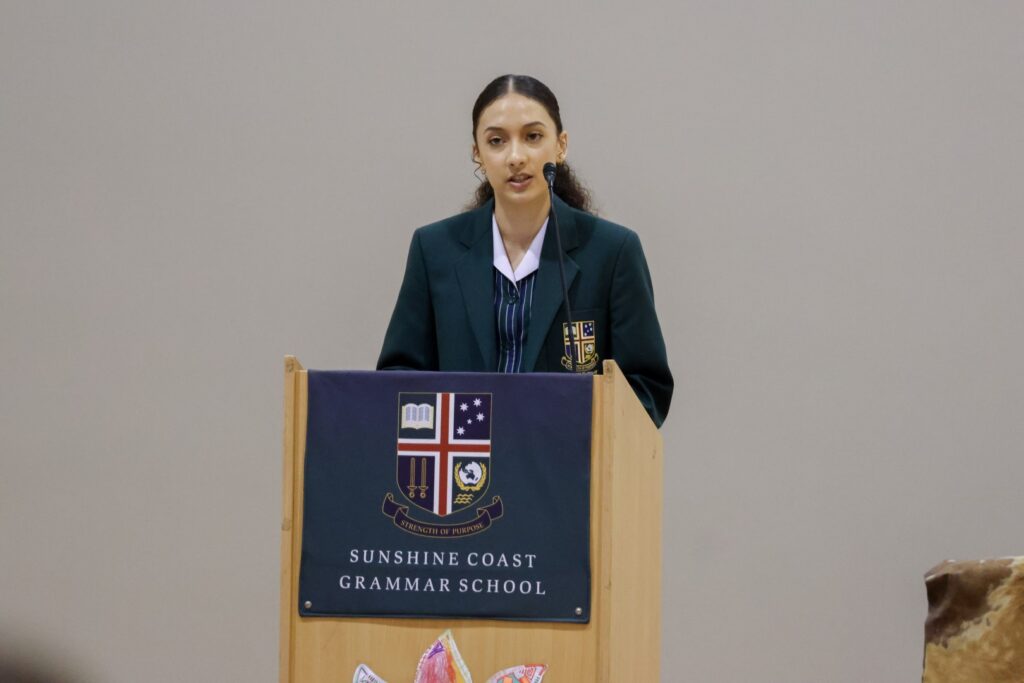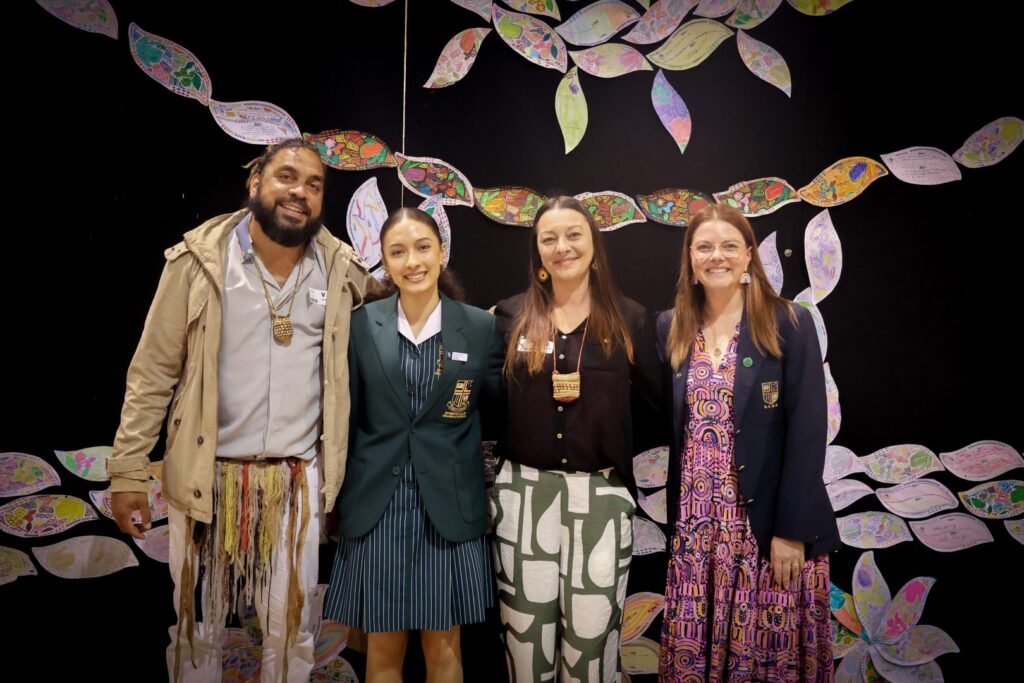On Friday, 30 May, Sunshine Coast Grammar School held its annual National Sorry Day Assembly, an event dedicated to acknowledging the strength of our First Nations People, reflecting on our Reconciliation Action Plan, and celebrating our Indigenous Ambassador.
The assembly featured a powerful address from David Gooken Nanangi Peters, a proud Pititijanjara man deeply connected to Uluru and the Kabikabi, Gubbi Gubbi, and Undumbi peoples through family ties with Elder Aunty Beverly Hand. For over 20 years, David has been committed to learning, practicing and sharing cultural knowledge through empowerment and identity-building workshops across the southeast. His speech resonated with students and staff and he concluded the event with a powerful didgeridoo performance.
A highlight of the assembly was the appointment of Year 11 student Mahalia Karooz as our 2025 Indigenous Ambassador. In her inaugural speech, Mahalia shared her vision for strengthening connections between Indigenous and non-Indigenous communities within our school. As part of her role, she presented a commemorative plaque for the Wunya Garden to our Principal, Mrs Anna Owen.
Our Reconciliation Action Plan Coordinator, Melissa Barber, reaffirmed the school’s dedication to meaningful reconciliation initiatives, highlighting ongoing efforts to foster understanding and respect. One initiative is the Kids in Action program, run by the Sunshine Coast Council, which continues to engage primary school students in initiatives that promote environmental stewardship and cultural awareness.
Building on the powerful messages, Year 12 students Amelia M, Rowan F and Marley R delivered an inspiring speech, encouraging their peers to actively strive for understanding, respect and unity.
At Sunshine Coast Grammar School, reconciliation means working inclusively in a meaningful and respectful way with Aboriginal families and communities. Our vision is to acknowledge the Gubbi Gubbi culture in symbolic recognition of the people and the country in which we live, work and play. Reconciliation represents equal and equitable educational opportunities and outcomes for our Aboriginal and Torres Strait Islander stakeholders, and an inclusive and diverse workplace that is not just culturally safe, but culturally rich and proud.
